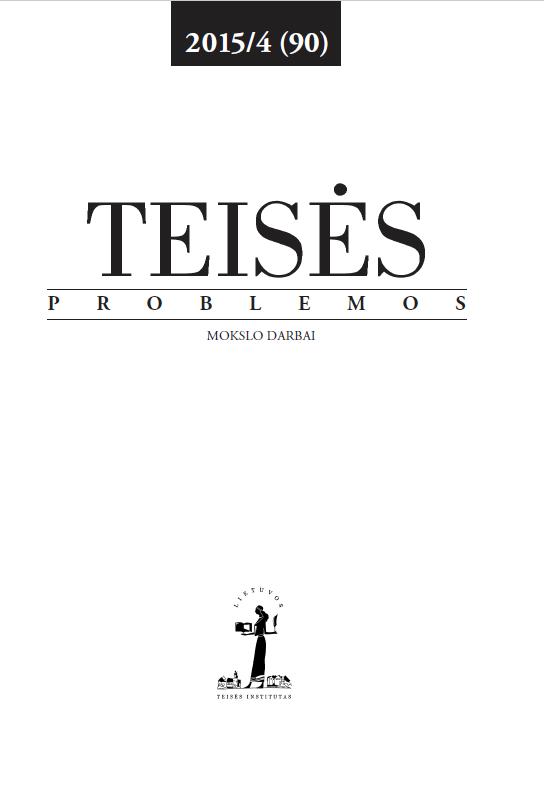Teismų praktika korupcijos bylose: kai kurie Jungtinių Tautų Konvencijos prieš korupciją nuostatų dėl bausmių juridiniams asmenims skyrimo ir turto konfiskavimo įgyvendinimo aspektai
Case Law in Corruption Cases: Some Aspects Relating Implementation of Provisions of the United Nations Convention against Corruption on Imposition of Sanctions to Legal Persons and Confiscation of Property
Author(s): Inga Daukšaitė, Eglė Kavoliūnaitė-RagauskienėSubject(s): Criminal Law
Published by: Lietuvos teisės institutas
Summary/Abstract: The research paper analyses Lithuanian case-law on three issues: imposition of sanctions upon legal persons, confiscation of secondary proceeds of crime and protection of bona fide third persons‘ rights in the procedure of confiscation of property. In 2013, the United Nations Convention against Corruption (hereinafter – UNCAC) review group in its report on Lithuania noticed that the legislation on the abovementioned issues in Lithu¬ania stands in line with the requirements of the UNCAC, however, it was unclear whether UNCAC provisions relating sanctions to legal persons and some aspects of confiscation of property were being implemented correctly in the case-law. Taking into account the fact, that the case-law on solely corruption cases in Lithuania is quite sparse, the authors decided to make a case-law review of all cases relating the previously mentioned issues during the last 5 years. This allows following the trends and usually used argumentation in court decisions thus enabling to draw substantive conclusions. The work presents the development of legislation in the analysed fields, summarises and presents case-law of the last 5 years and mentions the main risks or hypotheses why or where case-law of Lithuanian courts may divert from the formulations established in particular articles of the UNCAC, namely, Articles 26, 31(6) and 31(9). The research paper consists of three main parts devoted to three analysed issues (imposition of sanctions to legal persons, confiscation of secondary proceeds of crime and protection of bona fide third persons in the procedure of confiscation). Each of the parts has the same internal structure. The first section presents the genesis of the respective current provisions in the Criminal Code of the Republic of Lithuania, the second section clears out differences of the subject matter of the respective formulations of the UNCAC and the Criminal Code of the Republic of Lithuania, the third section provides a systematised view towards the case-law of Lithuanian courts in respect of all three issues, and, finally, the fourth section lists main risks and hypothesis on the possible discrepancies between the subject-matter of Articles 26, 31(6) and 31(9) of the UNCAC and the case-law in Lithuania. The results of the research show that in practice there are all preconditions for proper imposition of sanctions in respect of third persons. As regards confiscation of secondary proceeds of crime, it is clear that courts impose it only accidently, mostly because the case does not contain any data on the further usage of the proceeds of crime. Protection of bona fide third persons face no risk as courts in general are very reluctant to impose confiscation of proceeds of crime to third persons, although the formulation of respective Article 72(4) of the Criminal Code of the Republic of Li¬thuania literally leaves a theoretical possibility to fail to fully protect bona fide third persons rights.
Journal: Teisės problemos
- Issue Year: 2015
- Issue No: 90 (4)
- Page Range: 20-112
- Page Count: 93
- Language: Lithuanian

